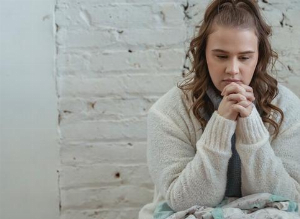Love life in the face of illness: how to cope?
Published Feb 14, 2019 • By Louise Bollecker

Today is Valentine's Day! This emblematic day, sometimes criticized for its commercial and marketing impact, undoubtedly evokes emotions and love. We organized a poll* to allow you to express your views on this subject. Does a chronicall illness affect romantic life? Does caring for a loved one also have an impact? Here are your answers.

Maintaining an intimate and sexual life: a challenge for 31.2% of respondents
The question "as a patient or family member, what impact does the disease have on your love life", a majority of participants answered that their intimate and sexual life is difficult. There are many reasons for this: decreased libido due to fatigue, erectile dysfunction, localized pain, etc.
Having a chronic illness can severely disrupt intimate relationships,; loved ones and relatives of individuals with a chronic illness may experience psychological or even physical exhaustion too.
>> Join our discussion group on Men's Health
For individuals who are not in a romantic relationship, being diagnosed with a chronic condition can also hinder meeting someone. Our large isolation survey revealed that 57% of patients had reduced their outings and social activities. Therefor, opportunities to meet new people are more limited. In addition, 88% of respondents reported an impact of isolation on their intimate life and 98% on their social life.
Relationships with partners are more difficult for 21.5% of respondents
For 21.5% of individuals diagnosed with a chronic condition and relatives, the survery revealed that relationships with their partners became more complicated due to the disease. Patients may suffer from their spouse's misunderstanding or no longer have enough energy to devote time and attention to them.
Only 9.3% of participants were lucky enough to see their relationship strengthened as a result of living with a chronic condition. Many couples separate after a chronic illness diagnosis; moreover, a recent study showed that a woman is six times more likely to experience a separation after being diagnosed with cancer or multiple sclerosis than a man in the same situation.
Remaining alone, the solution for 18.3% of respondents
"I want to be alone partly because of the disease" is the answer given by 18.3% of respondents to our survey. Scars, weight gain, weight loss, or medical equipment can lead to one developing a poor self-image. Difficulties in maintaining a "normal couple's life" or fear of rejection can discourage people to attempt to date.
>> Join our group on pain treatment and find solutions
What can I do to find a fulfilling love life?
Health professionals recommend that, first and foremost, discussing such issues and concerns with your significant other should. Communication is the tool that, in many cases, allows you to resolve issues, conflicts, and concerns. Everyone, at their own pace, without being feeling forced, will be able to relearn how to have a dialogue with their partner.
If you do not have a significant other, remember that you are not defined by your condition. You maintain all the remarkable qualities you had before the diagnosis or became a caregiver for a sick relative. Love can take many forms, whether your illness is disabling or not.
Symptoms of disease that impact a intimacy should also be treated as soon as possible. Neurological, cardiovascular, physical, or psychological symptoms can affect intimacy, as can the side effects of a drug. Talk to your doctor about treatments and methods that can reduce fatigue, pain, and improve morale.
You can also consult with:
- A psychologist, who can help you in the journey to resolve / overcome life and romantic concerns and issues, as well as acceptance of your diagnosis or that of a loved one.
- A sexologist, who can assit you in all aspects of romantic relationships, physical and emotional.
- A gynaecologist, who treats disorders of the female genital system, such helping reduce pain or various discomforts
- A urologist, who is responsible for the male urogenital system and can treat male sexual disorders and pains.
Has your relationship and/or intimacy faced difficulty or been adversely affected by your condition or that of a loved one? Opening up and talking about it is progress and a productive move toward resolution and/or understanding, whatever it may be.
Have you treated any specific symptoms?
Carenity
9 comments

You will also like

Spoon theory: What is it and how can it help people living with chronic illness?
Apr 13, 2022 • 7 comments

What is the psychological impact of chronic pain? Carenity members share their experience!
May 27, 2021 • 8 comments

 Facebook
Facebook Twitter
Twitter



